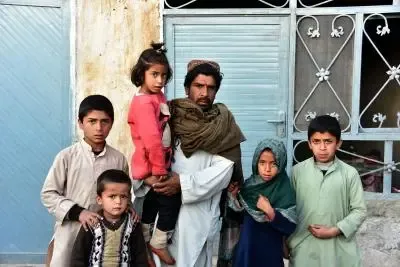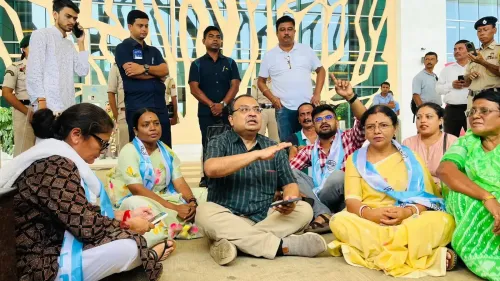What Happened to Afghan Refugees After Pakistan Revoked PoR Cards?

Synopsis
Key Takeaways
- Thousands of Afghan refugees are facing a crisis due to the revocation of PoR cards.
- There has been a significant rise in arrests and deportations.
- Calls for dialogue between Afghanistan and Pakistan are increasing.
- The UNHCR has highlighted the urgent need for aid.
- International law emphasizes the need to protect the rights of migrants.
Kabul, Aug 5 (NationPress) Thousands of Afghan nationals are currently facing a serious humanitarian crisis as Pakistan has recently revoked the Proof of Registration (PoR) cards issued to Afghan refugees. This decision has led to alarming arrests and forcible deportations, according to local media reports.
The situation has sparked significant concerns among migrants, with many calling for urgent dialogue between the governments of Afghanistan and Pakistan to address these pressing issues.
“It was anticipated that Afghan migrants holding PoR cards would receive a minimum of six months' grace period, but regrettably, Pakistan's unilateral action has initiated an ongoing crackdown on Afghan migrants,” stated Shabana, an Afghan migrant in Pakistan, as reported by Afghan media outlet TOLO news.
“The Pakistani government has altered its previous stance and has, in collaboration with the Islamic Emirate, formulated and initiated a structured plan for the gradual return of Afghan migrants,” remarked another Afghan migrant.
The Afghan Embassy in Islamabad disclosed that over 800 Afghan nationals were arrested in Rawalpindi and Islamabad within the last three days. Out of these, 380 individuals were forcibly deported, despite having valid refugee documentation.
The embassy's migration attaché emphasized that this move was unilateral, lacking any coordination with the Afghan government, the United Nations, or the UNHCR (United Nations High Commissioner for Refugees).
“Our reports indicate that 800 Afghan migrants have been apprehended by Pakistani authorities, with 380 of them possessing valid cards yet facing deportation,” stated Ursula Haqqyar, Deputy Attaché for Migration Affairs at the Afghan Embassy in Islamabad.
“In such circumstances, it is imperative for both the current Afghan government and international organizations to safeguard the rights of migrants, particularly those holding legal documentation,” emphasized Mohammad Khan Mohammadzai, a migrant rights advocate.
Previously, a deputy minister from Afghanistan's Ministry of Refugees and Repatriation voiced that the forced deportation of Afghan migrants from neighboring countries contravenes both international and Islamic law, urging host nations to uphold the rights and dignity of migrants.
On July 31, a report from the UNHCR indicated that nearly 1.2 million Afghans have returned from Pakistan since September 2023. The report highlighted that many returning Afghans are encountering dire conditions, prompting calls for urgent assistance to avert a worsening humanitarian crisis.
The agency reported that more than 315,000 Afghans returned to Afghanistan in 2025 alone, with 51,000 being forcibly deported by Pakistani authorities.









